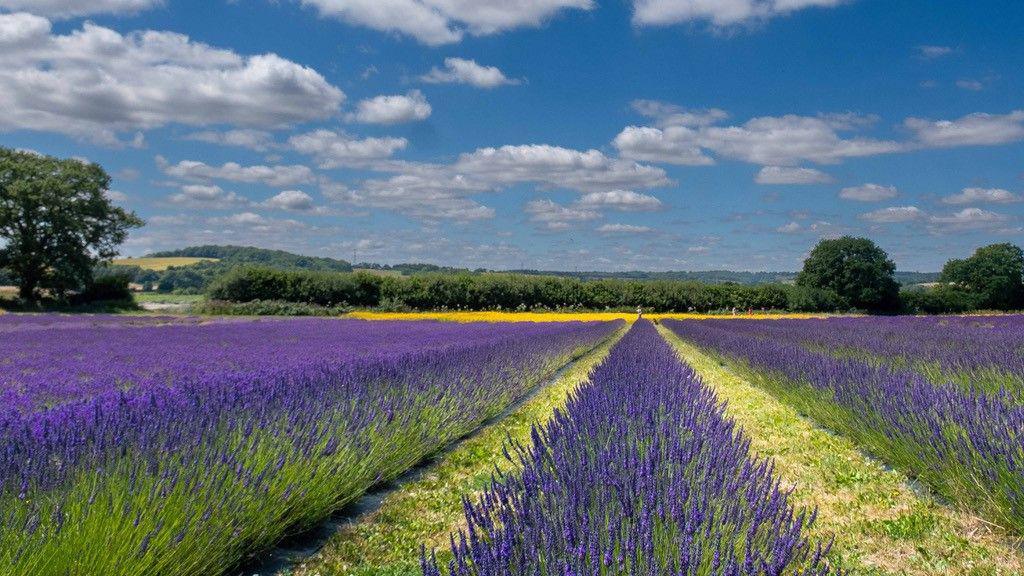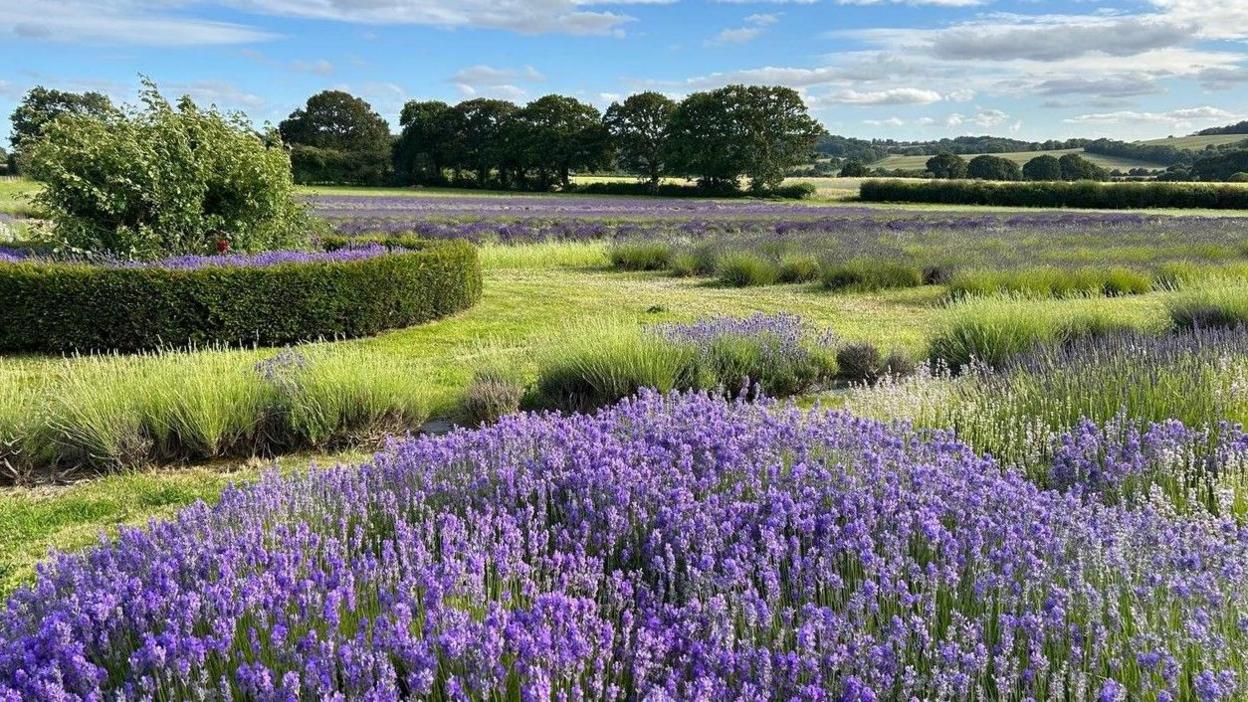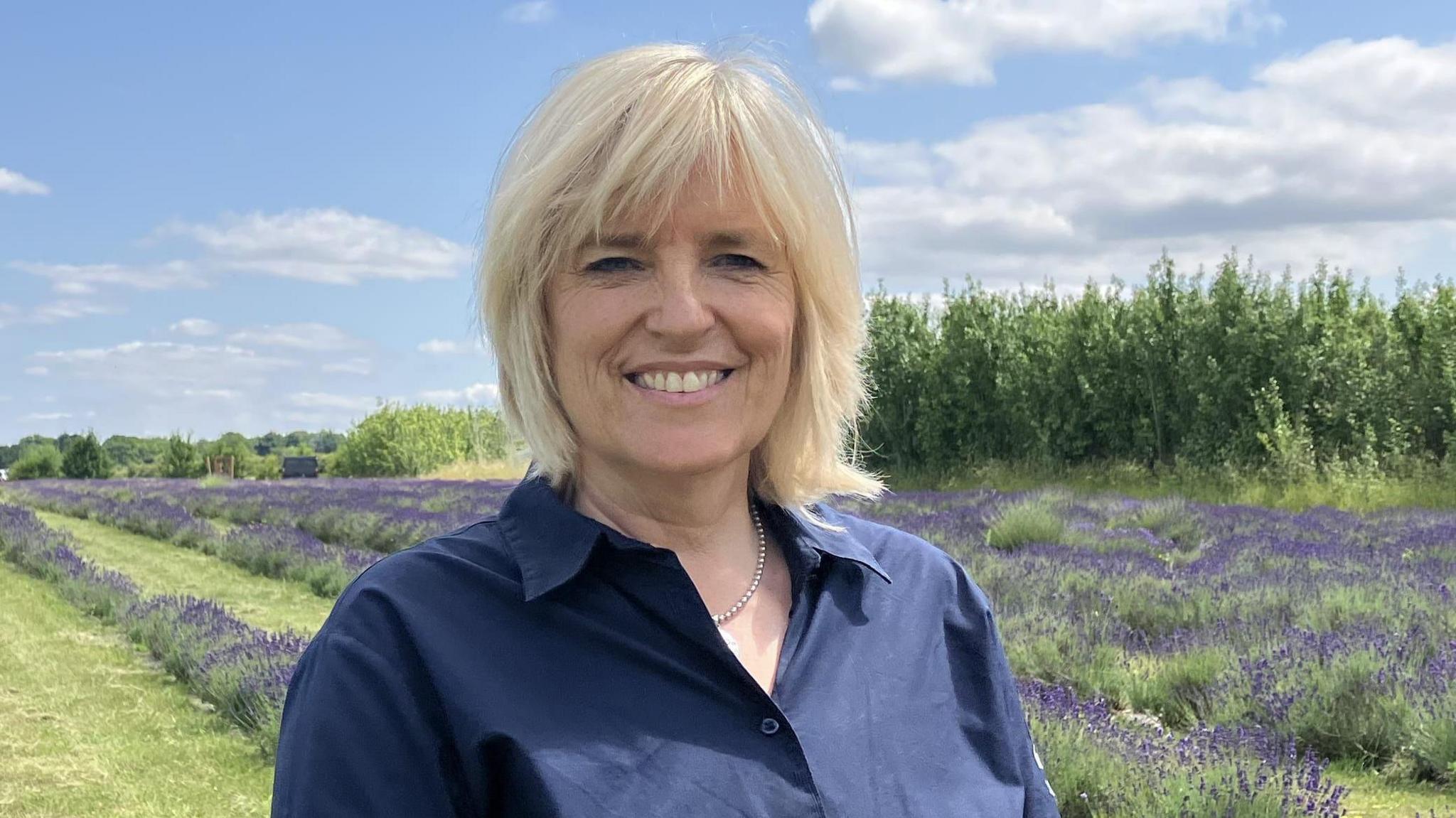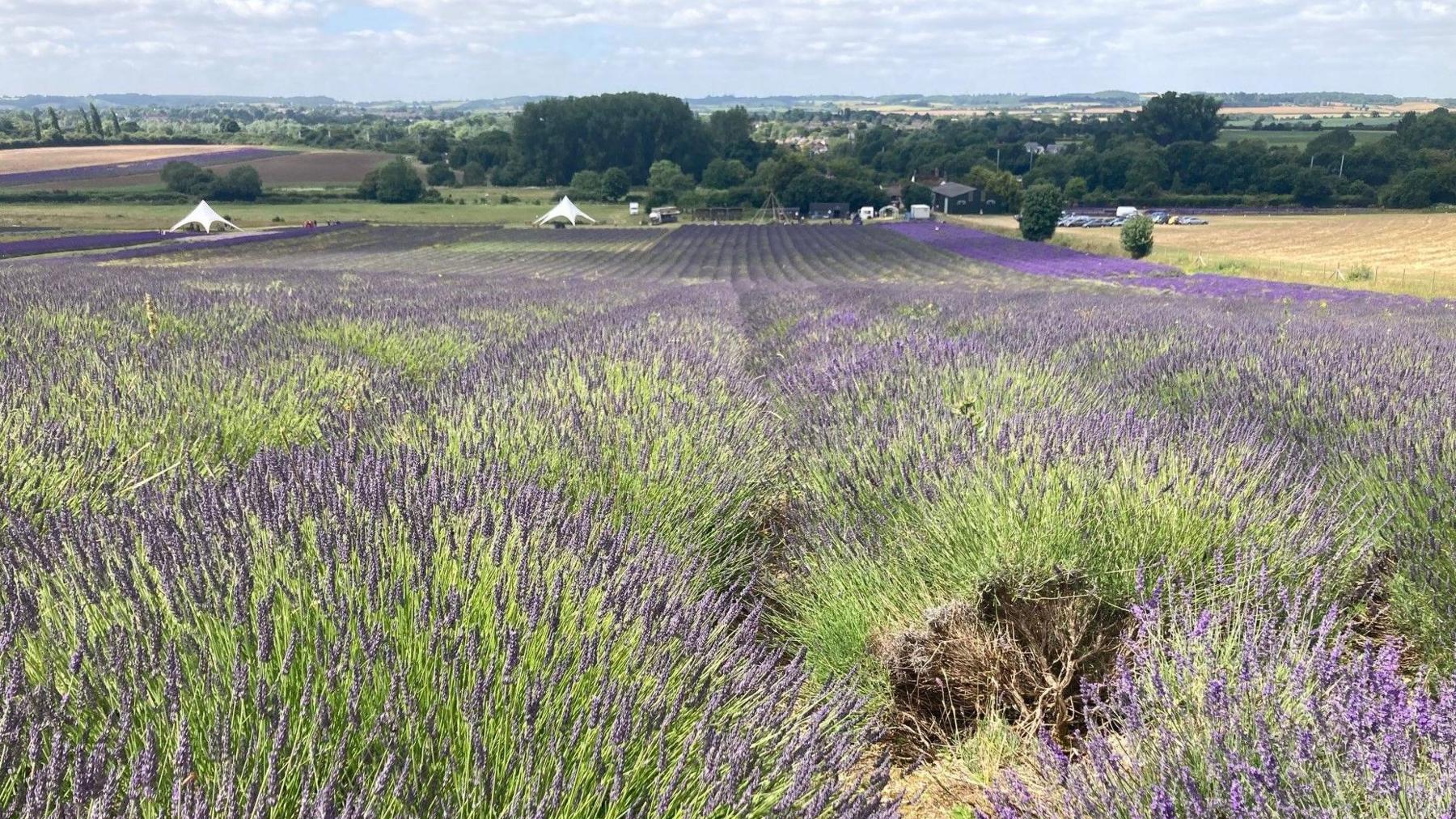Changing climate affecting lavender crops

The lavender fields have become a distinctive landmark in the Hampshire countryside
- Published
The changing climate is having an impact on vibrant fields of lavender that have been a popular summer sight in the Hampshire countryside, a grower has said.
Nick Butler's family introduced lavender to Hartley Park Farm near Alton 26 years ago.
Although the Mediterranean shrub, with purple flowers and a distinctive fragrance, loves hot summers, Mr Butler said this year's warm spring brought flowering forward by up to two weeks.
The Royal Horticultural Society has said "high spring light levels" had particularly affected lavender growth cycles.
It produces essential lavender and rosemary oils and the family has developed a range of hand, body and home fragrance products.
Mr Butler's parents began growing lavender in 1999, aiming to diversify their farming business.
Along with his wife Lyndsay, he took over the running of the farm in 2018.
There is now about seven acres of lavender and an acre of wildflowers grown on the site.
Each year about 15,000 people visit the farm during the nine-week flowering period, many after a photo opportunity among the swathes of purple lavender.

Seven acres of lavender is grown at Hartley Park Farm each year
Mr Butler said the effects of a changing climate were becoming noticeable.
Spring 2025 broke historical climate records, marking an unprecedented season of warmth and sunshine across the UK.
The winter of 2024/25 was marked by unusually wet weather.
The Met Office reported the eighth wettest winter since records began, with rainfall exceeding the 1991-2020 average.
"Although the lavender loves the hot summers, it absolutely hates sustained wet conditions like last winter," Mr Butler said.
"Wet conditions like this are the leading cause of the loss of lavender."
'Accelerated the flowering'
He said, although not a significant impact on the crop as a whole, it was "more than we would usually lose over a winter".
"Hot spring conditions this year have accelerated the flowering, which we would estimate this year to be two weeks earlier than normal," he added.
Growers elsewhere in England have also felt the effects. Hitchin Lavender in Hertfordshire announced it would open to the public a week earlier than usual because of the impact of the warm spring.
Guy Barter, Royal Horticultural Society chief horticulturist, said: "Mild winter, a record warm spring, drier, and therefore warmer soils and especially the very high spring light levels have favoured this Mediterranean shrub which hails from brighter, warmer drier climes."
Get in touch
Do you have a story BBC Hampshire & Isle of Wight should cover?
You can follow BBC Hampshire & Isle of Wight on Facebook, external, X (Twitter), external, or Instagram, external.
Related topics
- Published18 June

- Published16 July 2024
